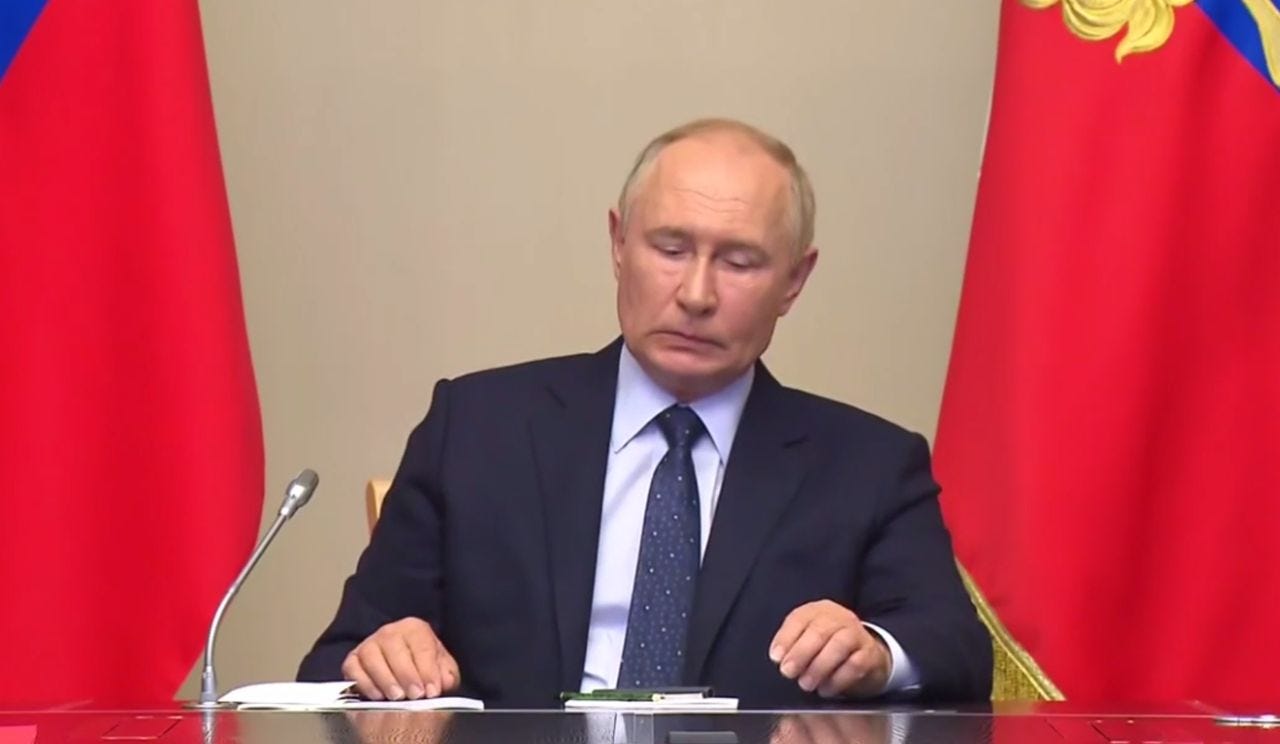The Worst Leader of the XXIst Century
Putin is a typical product of Russia's social disaster: an unhinged and socially inept human being.
Vladimir Putin's image as a strong leader has long been upheld by propaganda and careful narrative control. Once seen as the savior of Russia and a strategic genius, recent events have exposed the reality behind the facade. It was all fake, as he is the exact contrary: a toxic leader whose incompetence and failures are now undeniable.
Brutal Childhood
Vladimir Putin was born on October 7, 1952, in Leningrad. His parents, Maria Ivanovna and Vladimir Spiridonovich, were survivors of the Siege of Leningrad, a brutal 872-day blockade by Nazi forces that caused the deaths of over a million people due to starvation and bombardment.
Vladimir Putin grew up in a communal apartment. The small, shared living quarters, common in Soviet cities at the time, forced families to live in close proximity under cramped conditions. These communal apartments, known as kommunalkas, were notorious for their lack of privacy and the constant need to navigate brutal social dynamics. Putin’s experiences in such an environment likely contributed to his later emphasis on control and his distrust of others. He has described these early years as tough, where survival instincts were honed from a young age.
In his youth, Putin was not a model student. He was known to be unruly and often got into fights. This behavior drew the attention of both his peers and the adults around him, highlighting an early affinity for confrontation and physical dominance. Putin himself has recounted how his father taught him that he should never back down from a fight. This mentality was further developed when, at the age of 12, Putin began practicing judo and sambo, two martial arts that emphasize discipline, control, and the ability to use an opponent's strength against them.
Putin's interest in intelligence and security services began at a young age. As a teenager, he was fascinated by Soviet spy stories and was particularly drawn to the idea of becoming an intelligence officer. At the age of 16, he visited the local KGB office to inquire about joining the agency, only to be told that he would need to serve in the military or complete a law degree first.
Undeterred, Putin pursued his education with this goal in mind, eventually enrolling at Leningrad State University to study law. This decision was strategic; the law degree was not just a path to the KGB, but also a means to understand the structures of power within the Soviet state.
While at university, Putin was introduced to Anatoly Sobchak, a professor of law who would later become one of the key figures in Russian politics during the late Soviet and early post-Soviet periods. Sobchak's influence on Putin cannot be overstated; as the future mayor of Leningrad, Sobchak would become Putin's mentor and the person who provided him with his first significant political opportunities. However, before stepping into the political arena, Putin completed his law degree and joined the KGB in 1975.
KGB
Putin's KGB career began in Leningrad, where he worked in the Second Chief Directorate, which was responsible for counterintelligence. His early assignments involved monitoring foreign consulates and gathering intelligence on potential threats to the Soviet state. These early years in the KGB provided Putin with valuable experience in intelligence gathering, surveillance, and the manipulation of information—skills that he would later use to great effect in his political career.
In 1985, Putin was stationed in Dresden, East Germany, as a KGB officer. This period was critical in shaping his views on the West and the vulnerabilities of the Soviet system. Dresden, though far from the centers of power in Moscow, was a key outpost for Soviet intelligence operations in Europe. Putin's work there involved recruiting informants and gathering intelligence on NATO activities.
The KGB’s indoctrination instilled in him a mindset focused on control, deception, and the ruthless elimination of threats. His work in Dresden, where he witnessed the disintegration of the Eastern Bloc, further hardened these views.
The collapse of East Germany left a profound impact on Putin, reinforcing his belief in the necessity of absolute power and the use of authoritarian tactics, which degraded his approach to leadership and governance.
The KGB's influence on Putin equipped him with a network of like-minded individuals who shared his belief in a strong, repressive state. These allies became crucial in his rise during the chaotic post-Soviet era, ensuring that his leadership would be characterized by the very brutality and manipulation he learned during his KGB years.
St. Petersburg
In 1990, Putin returned to Leningrad, where he found a city and a country on the brink of collapse. The Soviet Union was disintegrating, and Leningrad was in the midst of political and economic turmoil. Putin resigned from the KGB in 1991, shortly before the agency itself was restructured, and took up a position as an advisor to Anatoly Sobchak, who was then the mayor of Leningrad.
Putin's initial role in Sobchak's administration involved handling international relations and attracting foreign investment to the city. This was a critical task, as St. Petersburg was in dire need of economic revitalization following the collapse of the Soviet Union. Putin's pragmatic approach and ability to navigate the complex, often corrupt, world of Russian politics quickly made him indispensable to Sobchak. His effectiveness in this role was due to his ability to leverage the connections he had built during his KGB career. These connections allowed him to secure deals and create opportunities that would have been out of reach for others.
Keep reading with a 7-day free trial
Subscribe to The Warsaw Express to keep reading this post and get 7 days of free access to the full post archives.





